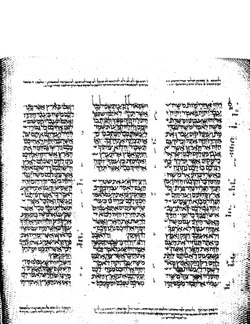The altar by the Jordan (22:1–12)
Still at Shiloh Joshua addressed the Transjordanian tribes who at outset of the conquest were obliged to participate with them in the war for the land although they had settled in their lands before their fellow-Israelites had crossed the Jordan (Joshua 1:12–18; cf. Deuteronomy 3:18–20 for the reference to Moses' command in verse 2). After the completion of the conquest and land distribution, they were now permitted to return home, with a strong exhortation (verses. 2–5; cf Deuteronomy 10:12–13) to be faithful to God and with Joshua's 'blessing' of them (verse 6). However, the unity of the people was soon called into question when those two and a half tribes, on their return, erected an altar by the Jordan, on the Israelite side of the border between the two lands (verses 10–11) and this was interpreted by the Cisjordan Israelites as an act of war, because it apparently challenged the claims of the unified sanctuary of Shiloh (verse 12).
The Altar of Witness (22:13–34)
The case against the two and a half tribes is outlined in terms of holiness requirements (verses. 13–20), so the priest Phinehas (son of Eleazar), rather than Joshua, was sent to talk to those tribes. The alleged sin from building the altar, whether it might make the land across the Jordan to be ritually 'unclean', and therefore unfit for worship (verse 19)., is compared with two other sins in the religious realm (verses 17, 20):
- the idolatry at Peor in the time of the wilderness wanderings (Numbers 25), and
- Achan's transgression of the ban on Jericho (Joshua 7).
It is the duty of all Israel, as a religious assembly or congregation,to pursue the errant tribes (verses 12, 16).
The Transjordan tribes responded by recognizing the unique claims of both YHWH and his altar (22:21–29) using the phrase 'The LORD, God of gods' (' el 'elohim YHWH) to emphasize a strong affirmation of YHWH's supremacy and the argument that this altar was not itself for sacrifice, but rather, as a copy of the true altar, to symbolize their participation in the worship even when they were on the other side of the Jordan (verse 27a). Thus the altar is named 'witness' (verses 28, 34), for the unity of Israel as well as the preservation of the true faith for future generations (verses. 24–28; cf. Deuteronomy 6:2, 7).
This page is based on this
Wikipedia article Text is available under the
CC BY-SA 4.0 license; additional terms may apply.
Images, videos and audio are available under their respective licenses.


